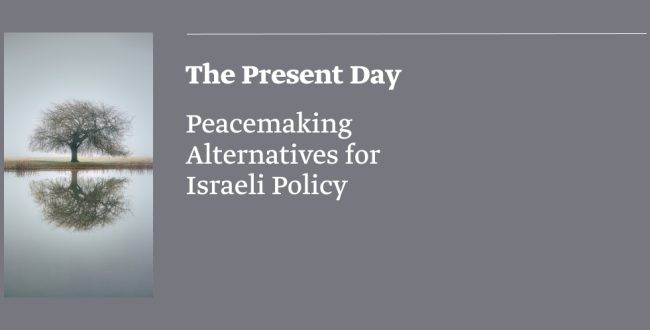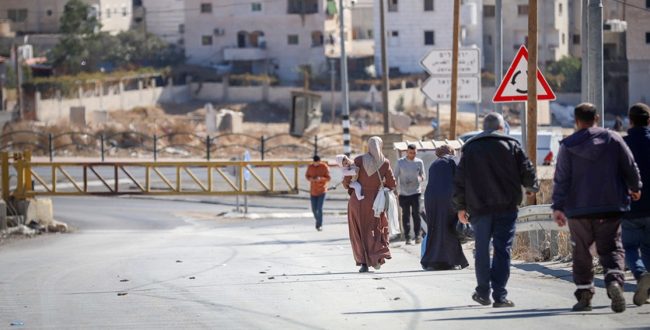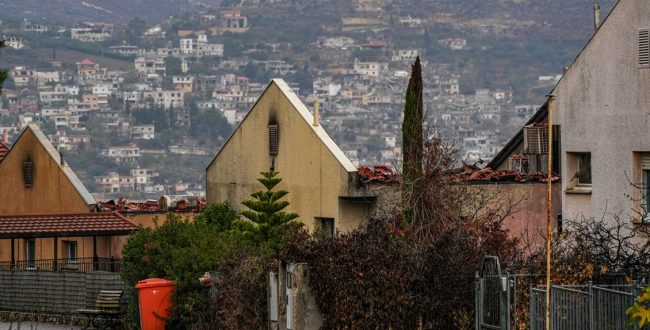On May 12, President Trump is set to announce whether the US will withdraw from the nuclear deal and re-impose sanctions on Iran. The changes in the US administration – replacing Secretary of State Rex Tillerson with Mike Pompeo and appointing John Bolton as national security advisor – raise the odds that Trump will announce a withdrawal. The Israeli government, which opposed the deal to begin with, will likely welcome such a move.
What is not clear is whether Trump’s administration has formed a day-after strategy. From Israel’s point of view, a withdrawal will not ensure the primary goal: stopping the Islamic Republic from becoming a nuclear threshold state.
There are pros and cons to the West’s deal with Iran. When it was signed, in the summer of 2015, Iran was months away from obtaining the material to build a nuclear bomb. The deal pushed that back about a year and is supposed to keep Iran at that point for about a decade, under tight supervision even after the deal expires. Yet eight years from January 2016, when implementation began, most of the restrictions placed on Iran’s nuclear program will be gradually lifted (first research and development, then uranium enrichment), freeing Iran to rush towards nuclear breakout.
Iran’s options if the deal collapses
A US withdrawal would leave Iran with three main options:
- Stick with the deal. Iran can declare that it is no longer committed to the agreement, without taking steps that would breach it in practice.
- Withdraw from the deal and reinstate aspects of the nuclear program frozen by it – especially uranium enrichment. The head of the Atomic Energy Organization of Iran, Ali Akbar Salehi, warned that if the US breaks the deal, Iran can resume enriching uranium to 20% purity at the Fordow plant within days.
- Not only withdraw but break out and build nuclear bombs, in violation of the Treaty on the Non-Proliferation of Nuclear Weapons (NPT). While hardliners in Iran may support this idea, it is highly improbable unless Iran faces a real military threat or enough economic and diplomatic pressure to endanger the regime, and so long as it has not shortened the time it would take to build a nuclear bomb (for instance, by installing advanced centrifuges).
Judging by official Iranian statements in recent months, the regime will be hard pressed to respond in some way to a US withdrawal, even if only with a declaration. On April 9, in a ceremony marking Iran’s National Nuclear Day, President Hassan Rouhani declared that the US would regret withdrawing from the deal, as Iran’s response would be “more forceful than they imagine”. Earlier, Deputy Foreign Minister Abbas Araghchi cautioned that if Europe failed to stop the US from withdrawing, Iran would withdraw, too.
Nevertheless, Iran’s response will largely depend on how other signatories react, and especially the European countries. It will also depend on the extent of damage to the economic achievements that the deal allowed Iran. If Europe throws its support behind a US attempt to renew sanctions, Iran may respond more harshly. If Europe does not, that will reinforce Iranian voices in favor of remaining in the deal, or at least staying committed to most of its restrictions. In the latter case, Iran may only take limited measures to demonstrate determination and save face, without justifying increased economic pressure by the West or a US/Israeli attack.
Would a US withdrawal force Iran to change its nuclear strategy?
If the US withdraws, it will have two major ways to prevent Iran from nuclear breakout: strike nuclear facilities or pressure Iran economically into more concessions than those agreed in the deal. A US attack may set Iran’s nuclear program back a few years, but would not prevent future development.
Such an attack is not likely, at least not without Iran making a move that signals nuclear breakout. Trump will be wary of involving the US in another Middle East war, even though his new national security advisor voiced support for the military alternative in the past. An Israeli strike would be even less of a setback to the nuclear program, and would cost Israel a military confrontation with Hizballah and even Iran.
Pressuring Iran into negotiating a better deal is also unlikely. Iran can certainly bow to pressure, as it did by agreeing to restart talks and accept restrictions under sanctions. However, the regime’s willingness to change tack will rely on its assessment of risks and opportunities, which may vary based on views at the helm. Hardline factions within the regime may respond to increased pressure with growing defiance, aiming to eliminate threats to their power and deter enemies of the Islamic Republic. Yet moderate actors may grow more amenable to relaxing regime positions and adopting a softer policy. A US withdrawal is likely to strengthen Rouhani’s opposition, which was against the deal to begin with. According to the opposition, Rouhani’s soft approach forced Iran to surrender to painful concessions without getting anything in return.
Supreme Leader Khamenei sees Trump’s intimations of withdrawal as proof that Iran’s nuclear program was only an excuse for the West to isolate and weaken Iran, the end goal being to overthrow the Islamic regime. Khamenei, who was suspicious of the talks to begin with, sees the problems with implementing the deal as proof that the West – and especially the US – cannot be trusted, and that economic improvement will only be possible through an “economy of resistance”: primarily, reducing Iran’s dependence on external factors. In this context, he declared the new Iranian year (which began on March 21) the “year of support for Iran-made products”.
Khamenei believes that a threshold military nuclear capacity is crucial to the regime’s survival. He is highly unlikely to concede on this point even under military or economic pressure. Khamenei has cited the agreement of former Libyan leader Muammar Gaddafi to nuclear disarmament in 2003 – which did not stop his ousting with Western aid – as support for Iran’s refusal to bow to Western demands.
John Bolton, the new US national security advisor, is considered a staunch supporter of regime change in Iran and is even directly tied to the opposition movement, the Mojahedin-e Khalq (MEK) Organization. Appointing him signaled that the US is determined to topple the Islamic regime. This may drive Tehran to resist conceding assets that are vital to deterrence, such as long-term ballistic capacity and military nuclear power.
It is also unclear whether the US can restore the international economic sanctions imposed before the deal. It can deter European and Asian companies (in Japan and South Korea, for instance) from dealing with Iran and impose secondary sanctions on companies trading with Iran, forcing them to choose between investing in Iran and continuing operations in the US. At least some companies will probably opt for the latter.
The US will likely not be able to totally ban oil export from Iran or sever Iran’s banking system from global finance again. This will be especially true if the global community holds the US responsible for ending the deal through a unilateral move that goes against the interests of the other signatories. Russia and China will try to minimize damage to Iran, as they have done in the past. The European union has made it clear in recent months that it will not reinstate the economic sanctions even if the US withdraws from the deal.
Moreover, Europe apparently plans to demand an exemption from US secondary sanctions and even provide Euro credit lines and financial guarantees, so that its companies can circumvent the US sanctions and maintain business ties with Iran. If efforts to convince Trump to stay in the deal fail, Europe may even draw closer to Iran and ease pressure on its policies – including the missile program and regional involvement – in order to stop Iran from withdrawing and renewing nuclear activity.
There is no doubt that if the US withdraws from the deal, economic pressure on Iran will increase, especially as Iran is already facing a growing economic crisis fueled partly by deep structural problems that deter foreign investors. However, it remains to be seen whether it will be possible to pressure Iran enough to ease its policies on issues that the regime believes are crucial to its survival. Even if the US manages to get the other states to support sanctions, it would be a lengthy process with the outcomes not immediately visible.
Ultimately, if the deal collapses with no alternative in place and without an efficient strategy to prevent Iran’s nuclear development, the global community – including Israel – may face a worse reality than that created by the deal. Instead of a better agreement, a US withdrawal may push Iran even closer to nuclear breakout, without the international community having any desire or real ability stop it.
* The original article, in Hebrew, was published prior to May 12.
Translated by Michelle Bubis

















